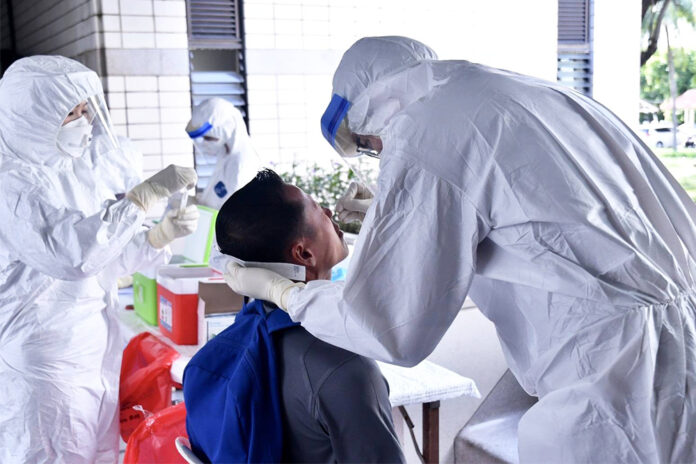A test for COVID-19 will soon be required for every foreigner who wishes to extend their stay in the kingdom, the immigration police said Monday.
Bureau spokesman Archayon Kraithong said the new measure will make it mandatory for foreigners to obtain a proof of negative coronavirus test before visiting the immigration to extend their visa.
He said the stringent rule will apply to every type of visa, regardless of how long the foreigner has stayed in the country.
“It will become effective after Jan. 24,” Maj. Gen. Archayon said by phone. “This is in accordance with the new ministerial regulation and will apply to all types of visa.”
Under the new rule published in the Royal Government Gazette on Dec. 25, COVID-19 was added to the list of prohibited diseases for foreigners who wish to enter or take residency in Thailand.
Other diseases include leprosy, “dangerous stage” of tuberculosis, elephantiasis, drug addiction, and tertiary stage of syphilis.
But the immigration appears to recognize no difference between foreigners flying into the country and those residing in Thailand who had not left the country since the pandemic began.
Under exisiting rules, foreigners outside Thailand are already required to present a proof of negative test, as well as a valid visa, a certificate of entry issued by a Thai embassy or consular office in their country, a fit-to-fly certificate issued by a local hospital, and a health insurance policy before boarding their flights to Thailand.
Apart from confirming the planned date for enforcement, the spokesman did not give any further information on how the new measure will be implemented.
The new rule will likely place further financial burden on expats residing in Thailand. A coronavirus test at the government-run Bamrasnaradura Infectious Diseases Institute costs about 3,000 baht, but the price can go to 6,000 baht and even 8,000 baht at some hospitals.
Thailand reports 369 new coronavirus cases on Monday, including 357 domestic transmissions and 12 imported cases found in state-run quarantines.
The country now has more than 12,400 accumulated cases since the outbreak began in early 2020 – half of them were discovered in the past month alone.
This article is taken from Khaosod English

